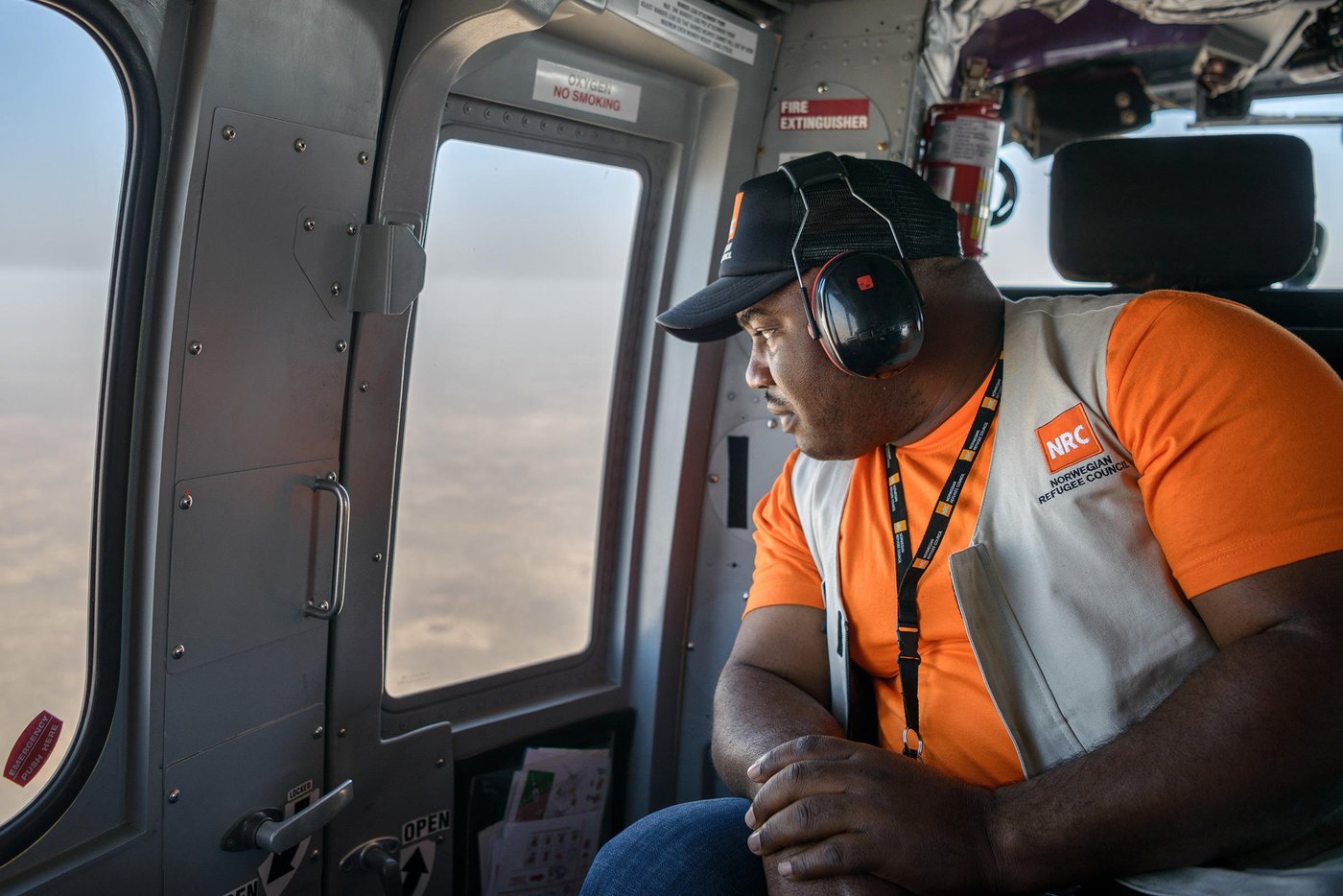Below us are thousands of displaced people without access to help. Soon we will find that among them are small children without parents, people who have survived on leaves and insects and women who can’t bear to tell what they have experienced.

One million people without help
All humanitarian aid work for displaced people has two dimensions: to provide life-saving emergency aid and protection. But to save lives, we must be able to get to those hurt by the conflict. In North East Nigeria, up to 820,000 displaced people have been left to their own devices. The Norwegian Refugee Council (NRC) has been among the first aid organisations to establish a presence in several of the most unsafe areas. Our goal for 2019 is to reach even more of those who are currently desperately trying to survive on their own.

The UN is responsible for air transport through the United Nations Humanitarian Air Service (UNHAS). They are the bridge that connects support workers with the survivors of conflict. Without them, the lack of security, the great distances and the bad roads would make it an impossible task.
The trip from Maiduguri, the capital of the state of Borno in North East Nigeria, to Dikwa takes only about 25 minutes by helicopter. The security situation makes it impossible to use the roads.
The centre of the conflict
Boko Haram controlled Dikwa for six months in 2015 and 2016 before a joint military force with soldiers from Nigeria and neighbouring Chad and Cameroon drove them back in February 2016. In recent years, the group has been split into factions such as the Islamic State West Africa Province (ISWAP) and Jama'atu Ahlis Sunna Lidda'awati wal-Jihad (JAS). Like most towns in the north of Borno, you don’t have to go far outside the town limits before you are in no man’s land or where the armed group has control.

Dikwa had 80,000 inhabitants before Boko Haram took over. Now, the town holds 120,000. The newcomers are mainly farmers who have fled from rural villages. Food production is thus directly affected by the conflict, which means that prices are rising and food shortages are becoming precarious. On the few swatches of land that are available on the outskirts of the town, they grow sorghum, onions and beans.
The vast majority of people in the town and almost everyone from the countryside have no schooling and are in practice illiterate. There is one hospital, a few mobile clinics run by the UN and three schools. There are 16 refugee camps in addition to a transit centre and a reception centre for new arrivals.
NRC provides shelter
Jonathan Vandu, NRC’s field office coordinator in Dikwa, says that the eleven employees are under a tremendous amount pressure and that new refugees are arriving all the time. NRC provided shelter for 600 families in November alone, but lacks the land to build more.

Domestic violence and sexual exploitation have also been a major problem. But through cooperation with other organisations, NRC managed to persuade the authorities that the military should release control over the reception centre for new arrivals. There were reports that the soldiers exploited the women’s unprotected situation to acquire sexual services and that they held people there for a long time. Young men who came from areas controlled by armed groups were often arrested on suspicion. Now, the International Organization for Migration (IOM) manages the reception centre.
Jonathan continues: "Now people are getting through faster and the situation is generally much better." He says that people who arrive at the reception centre are often traumatised and many are malnourished.

New people fleeing the conflict are constantly arriving at the reception centre in Dikwa. This testifies that the conflict between armed groups and the government army is far from over. The centre houses people of all ages and tragedies that are difficult to grasp. It’s like a library of untold stories.


